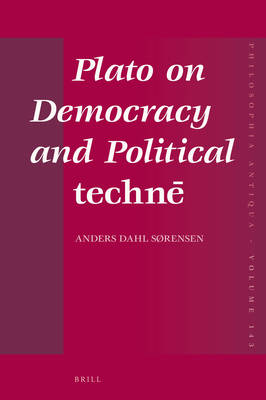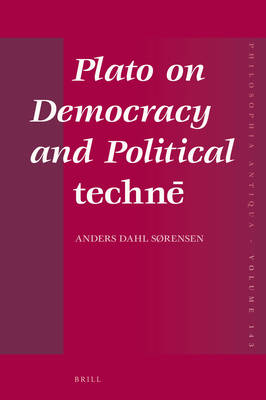
- Afhalen na 1 uur in een winkel met voorraad
- Gratis thuislevering in België vanaf € 30
- Ruim aanbod met 7 miljoen producten
- Afhalen na 1 uur in een winkel met voorraad
- Gratis thuislevering in België vanaf € 30
- Ruim aanbod met 7 miljoen producten
Zoeken
Omschrijving
In Plato on Democracy and Political technē Sørensen argues that the question of democracy's 'epistemic potential' was one that Plato took more seriously than is usually assumed. While he famously rejected democracy on the basis of its inherent inability to accommodate political expertise (technē), he did not think that this failure on democracy's part was necessarily inevitable but a concept that required further examination. Sørensen shows that in a number of his most important dialogues (Republic, Gorgias, Statesman, Protagoras, Theaetetus), Plato was ready to take up the question of democracy's epistemic potential and to enter into strikingly technical and sophisticated discussions of what both rule by technē and rule by the people would have to look like in order for the two things to be compatible.
Specificaties
Betrokkenen
- Auteur(s):
- Uitgeverij:
Inhoud
- Aantal bladzijden:
- 208
- Taal:
- Engels
- Reeks:
- Reeksnummer:
- nr. 143
Eigenschappen
- Productcode (EAN):
- 9789004312005
- Verschijningsdatum:
- 23/09/2016
- Uitvoering:
- Hardcover
- Formaat:
- Genaaid
- Afmetingen:
- 155 mm x 236 mm
- Gewicht:
- 430 g

Alleen bij Standaard Boekhandel
+ 424 punten op je klantenkaart van Standaard Boekhandel
Beoordelingen
We publiceren alleen reviews die voldoen aan de voorwaarden voor reviews. Bekijk onze voorwaarden voor reviews.











